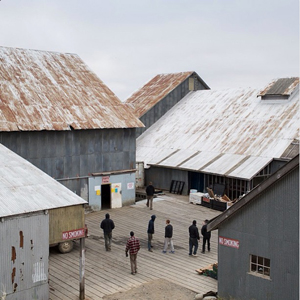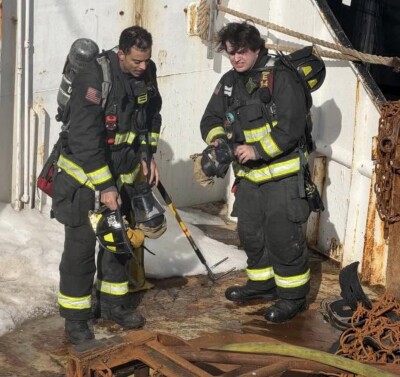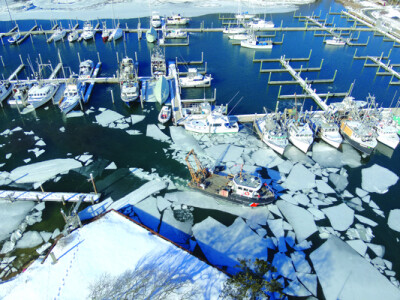I've been following Corey Arnold's photography feed on Instagram this week (he is guest-pirating the New Yorker magazine's account). It's been the next-best thing to being in Naknek ahead of Bristol Bay's setnet salmon season.
The Environmental Protection Agency extended the comment period on the Pebble Mine watershed assessment another month to June 30, which means the Bristol Bay salmon season will be in full swing before the comments close.
Perhaps this is an opportunity to promote every possible aspect of the Bristol Bay fishery so everyday Americans can see what it means to the entire community that the world's largest sockeye fishery is open there every year.
One look at Corey's documentation of the preseason sums it up: the money made by fishing has a deep reach into the surrounding Alaska communities and far beyond.
He has published photos of diners, hotels and the Naknek processing facility; from airplanes and airports; of seasonal workers who support the industry and seasonal fishermen preparing for the fishery. And this is all before the season begins.
Corey himself lives in Oregon and refers to Bristol Bay as his favorite time of year. He has other sources of income, but fishing the bay is not just a way to make money. Salmon season on the bay is a way of life, albeit just a snapshot of life in a short six weeks out of every 52.
The people who fish there come from all over the country. The fruits of their labor supply the world with wild salmon. And just like the feared approval of Frankenfish (genetically modified salmon) could lead us down the slippery slope to a trend of genetically modifying livestock, the risks we take with Pebble set the stage for the management of natural resources across the country. So if you think Pebble Mine would have no effect on your life, the chances are you're seriously wrong.
Check out Corey's snaps on Instagram and be sure to comment on the Pebble Mine watershed assessment if you want to preserve Bristol Bay and the future of wild salmon in America.







